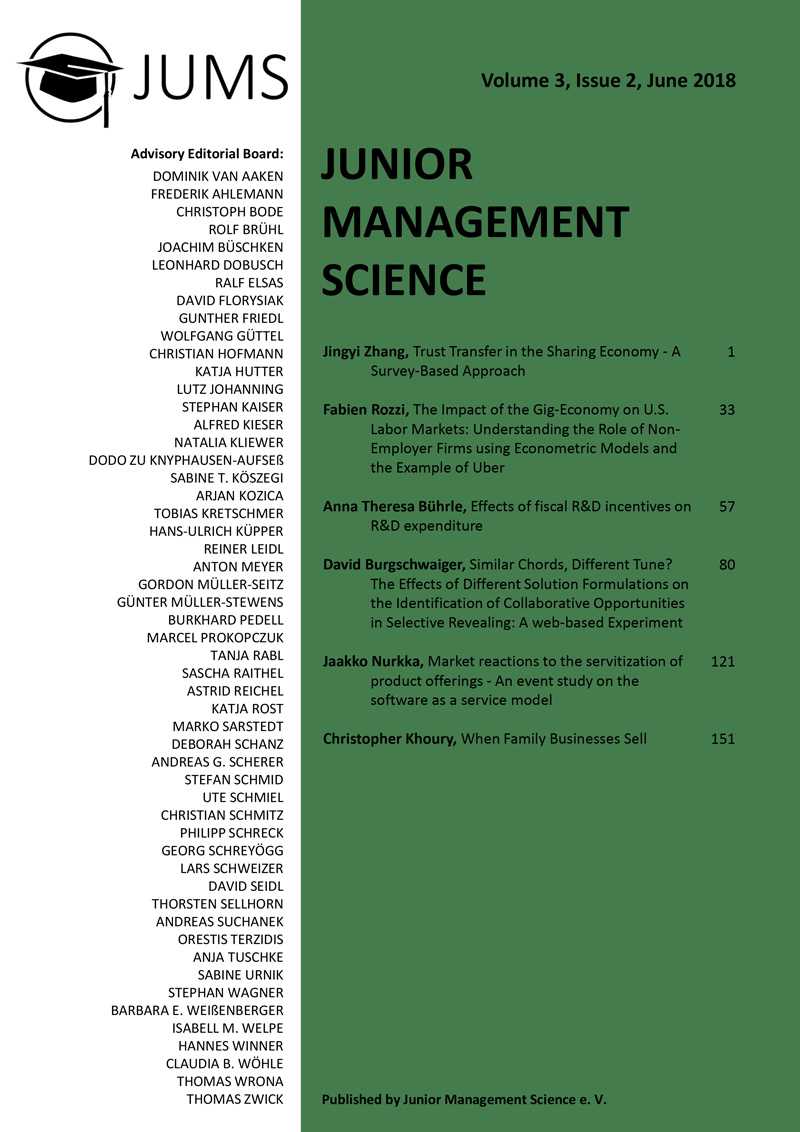Abstract
Special tax incentives aiming to foster research and development (R&D) investment are widely spread among the members of the Organisation for Economic Co-operation and Development (OCED). I investigate the effect such tax incentives have on business R&D investment. Fiscal R&D incentives can be categorized as input-oriented tax incentives such as tax credits, super deductions and accelerated depreciation, and as output-oriented incentives such as patent box regimes. In the first part of my thesis I provide an overview over the methodology of the B-Index, a measure for the generosity of input-oriented tax incentives. Calculations of the B-Index for 33 OECD-countries and China from 1991 to 2014 show an overall trend towards an increase in the generosity of input-oriented fiscal R&D incentives. In the second part of my thesis, I create a panel with country-level data on business R&D investment provided by the OECD. I test reactions to changes in R&D tax incentives and find a positive effect of input-oriented R&D tax incentives, but no significant impact of output-oriented R&D tax incentives. A more detailed analysis on the industry-level shows that the results are driven by effects on business R&D investment in the manufacturing and services sector. Special tax incentives aiming to foster research and development (R&D) investment are widely spread among the members of the Organisation for Economic Co-operation and Development (OCED). I investigate the effect such tax incentives have on business R&D investment. Fiscal R&D incentives can be categorized as input-oriented tax incentives such as tax credits, super deductions and accelerated depreciation, and as output-oriented incentives such as patent box regimes. In the first part of my thesis I provide an overview over the methodology of the B-Index, a measure for the generosity of input-oriented tax incentives. Calculations of the B-Index for 33 OECD-countries and China from 1991 to 2014 show an overall trend towards an increase in the generosity of input-oriented fiscal R&D incentives. In the second part of my thesis, I create a panel with country-level data on business R&D investment provided by the OECD. I test reactions to changes in R&D tax incentives and find a positive effect of input-oriented R&D tax incentives, but no significant impact of output-oriented R&D tax incentives. A more detailed analysis on the industry-level shows that the results are driven by effects on business R&D investment in the manufacturing and services sector.
Keywords: R&D, tax incentives, B-Index, taxation, OECD

